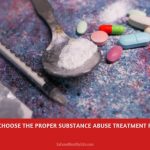
Image Source: Pixabay
A major part of minimizing the physical and psychological damage of substance abuse is providing help, education, and resources to America’s young people. Because of phenomena such as peer pressure, the prevalence of social media, family problems, and other factors, young people may start using drugs as a means of escape.
What starts out as experimentation often leads to dependence issues and then full-on addiction. In order to address the issues that lead to addiction in young people, there must be solid resources in place.
Prevention education and being aware of the signs of addiction are key in helping young people and their loved ones become aware and proactive in combating substance abuse.
Available Resources for Young People
There are many options that are available to teens and parents regarding addiction prevention and awareness. A great place to start looking for youth-based substance abuse programs and education programs can be found on the websites of national health organizations such as SAMHSA, NCADD, and Youth.gov.
These and similar websites provide a wide variety of programming and resources for teens and the parents of teens.
Additionally, there are also state-run agencies that provide youth-centered educational and prevention programs. Many school districts throughout the country offer DARE and similar afterschool prevention programs.
Above all else, teens and their families can talk to their physician or other healthcare providers for referrals to counselors, hospital and clinic programs, and other community-based intervention programs.
Understanding the Warning Signs
Awareness is key in pinpointing the warning signs of drug dependence and addiction. By understanding the general warning signs, the sooner you can act to get professional help. The general warning signs of substance abuse in young people can include the following:
- Mood changes including temper tantrums, irritability, and a pronounced state of defensiveness
- Academic problems including poor attendance, failing grades, and increasing prevalence of disciplinary action
- The presence of new friends and a reluctance to have parents/family get to know the new friends
- A lack of involvement in former interests
Ways to Minimize the Risk of Dependence and Addiction
To minimize the risk of young people falling into the trap of substance use and dependence, parents can do the following:
- Talk openly and honestly about drug and alcohol use.
- If you are a parent who drinks or uses drugs, consider how your children mirror your behavior. If you abused drugs and alcohol in the past, be candid about your experiences.
- Create a home environment that instills a positive and strong sense of identity.
- Listen! If your child may be experimenting with drugs or is struggling with substances, you must find a way to encourage open dialogue.
- Know your child’s friends. If you notice a sudden change in their friends and notice something awry, make it a point to try and get to know who they are and what they are up to.
For young people who may be struggling with drugs and alcohol, there are things they can do to get the help and support they need:
- National organizations such as the National Institute on Drug Abuse (NIDA) have websites that are specially geared for young people. These website feature resources that educate young people on the physical and psychological dangers of drug use. Additionally, they also feature resources where they can get help.
- Find positive people. If you desire to change yourself, it is important to stick with a family member, peers, and other trusted community members that display the behavior and character you want to model. These people will help those in need to find healthy activities and outlets that will help them steer clear of temptation.
- Talk to parents, teachers, or other trusted figures if you are having trouble. Finding these “safe people” allows you the chance to openly and freely speak about any issues. Additionally, they can help you find the resources you need to get help.
This article is not a definitive list, but it will give you a great start in finding the appropriate resources and support you need to combat substance abuse in young people.
It is important not to shy away from this very important issue; tackle it head-on, and arm yourself with the knowledge you need to help the young people in your life steer clear of drugs and alcohol.
About The Author:
Robert Tropp is a functional nutrition practitioner whose primary focus is on substance abuse and mental health disorders. Robert used functional medicine to help heal his mind and body, and now uses the lessons he learned in his journey to wellness to help others struggling to regain their mental and physical well-being. Robert is an advocate for the importance of nutrition in addiction recovery and works as the health and wellness director at Nuview Treatment Center in Marina Del Rey, CA.




